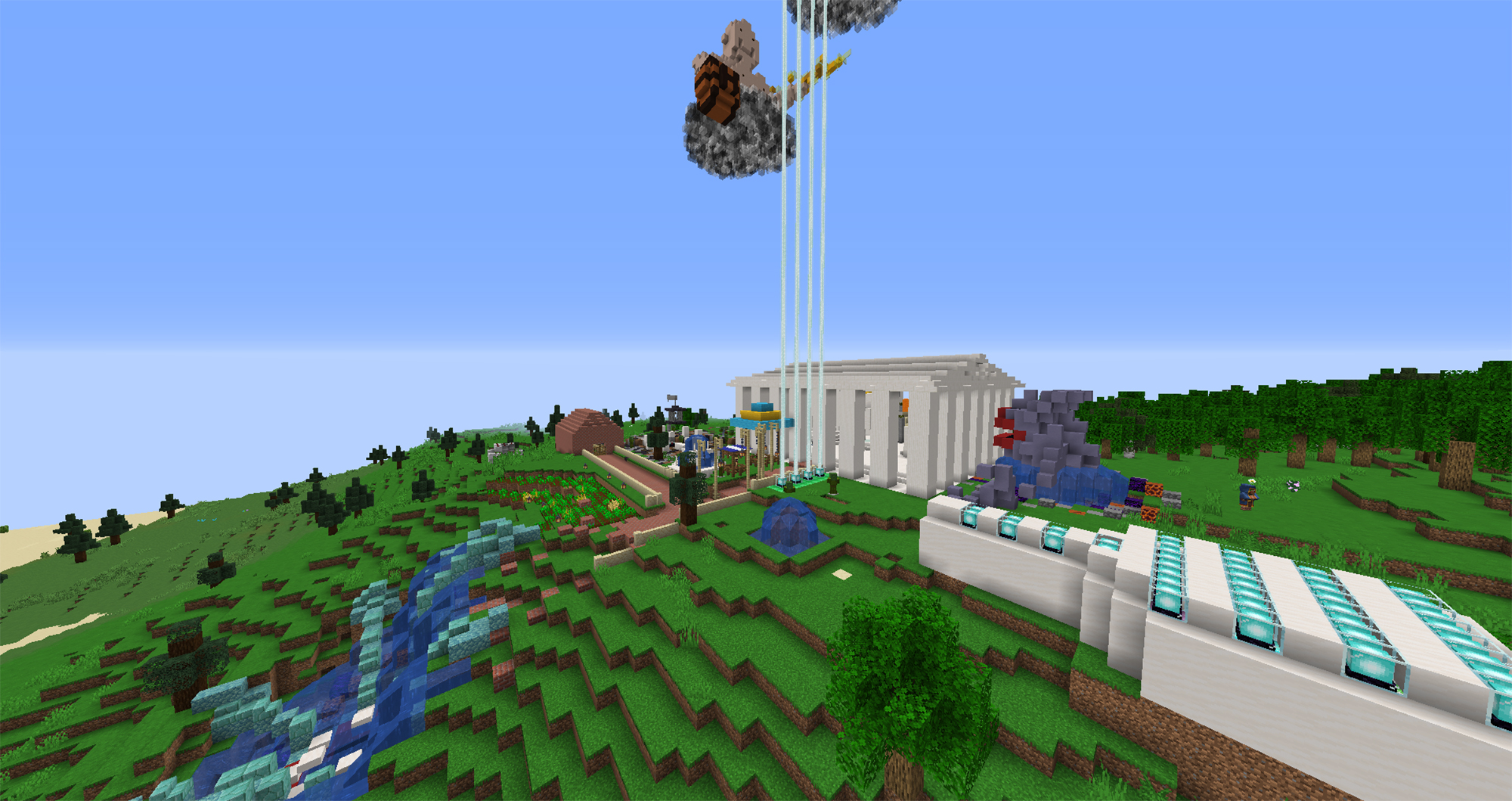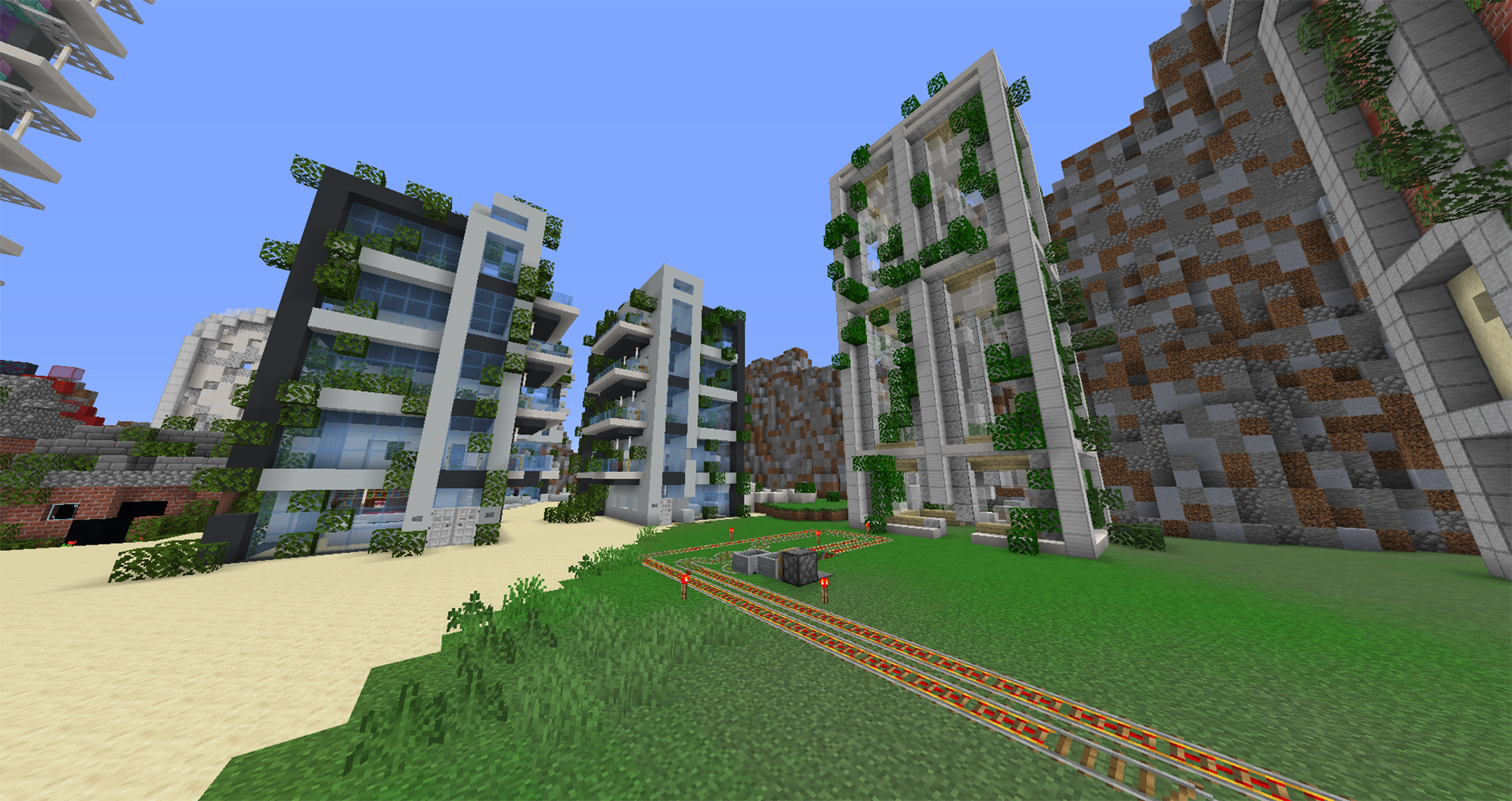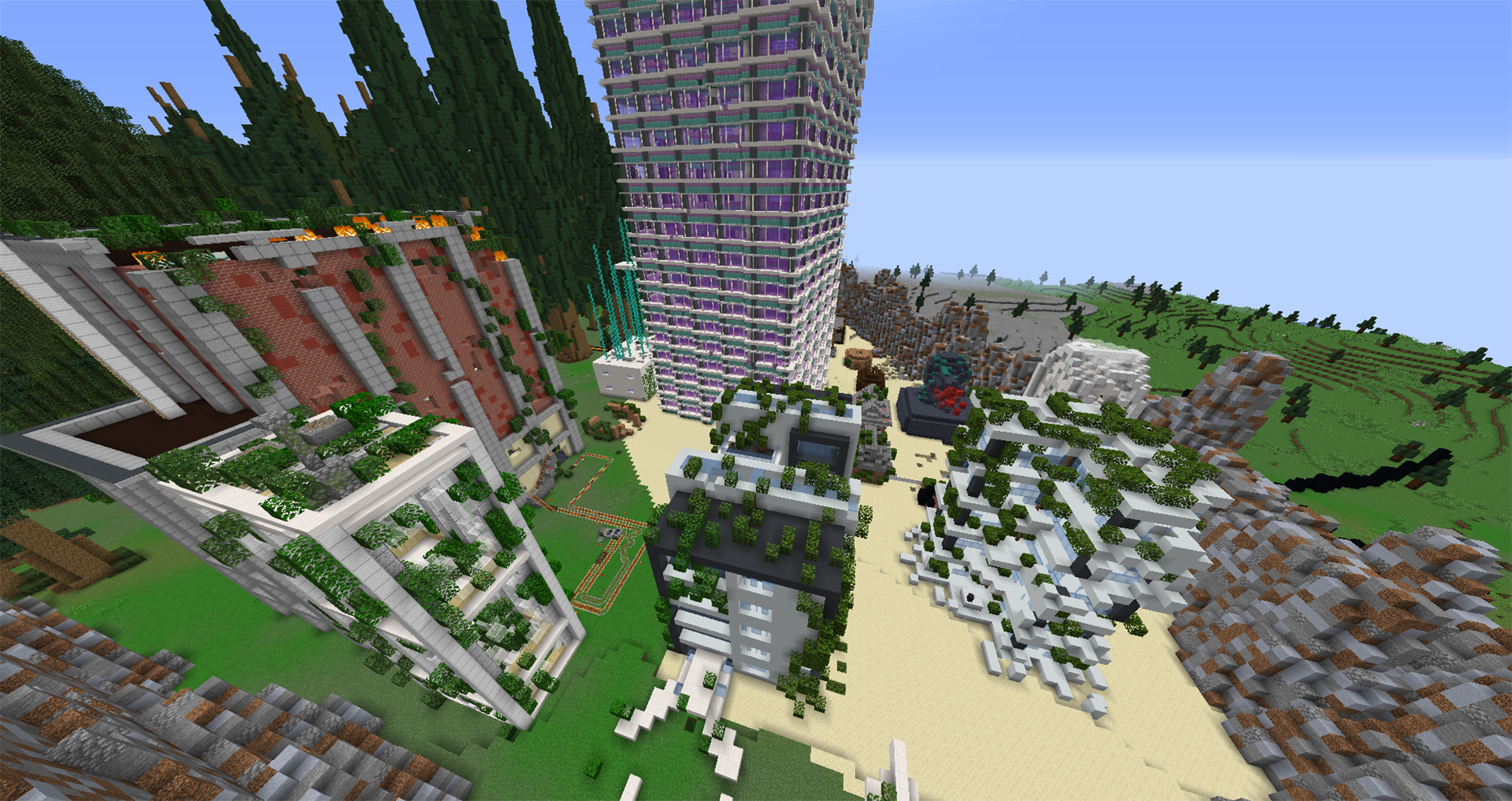
24.11.20 - The Daniels Minecraft Camp provided learning and friendship during a summer of COVID
Imagine experiencing the summer of 2020 as a child: constant uncertainty, limited entertainment options, and few opportunities to play with other kids. Under normal circumstances, the solution to childhood summer boredom is summer camp, but most summer programs were cancelled this year.
The Daniels Faculty took a different approach: it created a new type of summer experience for kids, based on the popular video game Minecraft. The Daniels Minecraft Camp, which held eight one-week sessions throughout July and August, was delivered entirely over the internet.
Unlike most video games, Minecraft doesn't tell players what to do. The game is built around a Lego-like system of block-based crafting. Gamers are free to ignore the rules and build anything they want. And the game has multiplayer capabilities, meaning a group of several players can all gather on a single Minecraft server and work together on collaborative building projects.
The Daniels Minecraft Camp aimed to use this sandbox-style multiplayer functionality to create a social, creative environment that young campers could enjoy from behind their computers, without leaving their homes.
The camp was an all-day program, designed to replicate the rhythms of a regular day camp. Campers logged on at 9 a.m. each morning and gathered in a virtual environment inside Minecraft. The setting was a computerized playground with mountains, forests, abandoned temples, a tree fortress, and even a network of underground tunnels. This virtual world had been painstakingly designed and created over a period of weeks by the camp's councillors — skilled Minecraft players, all of whom were members of U of T eSports, a student club devoted to competitive gaming.
Paolo De Guzman, a neuroscience and physiology undergrad, heads U of T eSports's Minecraft division and helped design the Daniels Minecraft Camp program. "The thing I'm most proud of is the way all these kids were able to make friends," he says. "On the first day of each session, the kids were kind of shy. But, by the last day, the amount of trust that they had with each other was awesome to see."
Campers and councillors communicated using videoconferencing software. Each day began with an ice-breaker activity, after which campers split into small groups, each led by a different camp counsellor. In these groups, campers worked on collaborative design exercises, all leading up to a show-and-tell session at the end of the week.
Milena Kako, a behavioural therapist from Toronto, enrolled her two sons, 11-year-old Julian and 13-year-old Tristan, in the camp for four weeks. "I was working, and my husband works as well," she says. "We wanted the kids to be involved in something that would be fun, but also beneficial for them. We thought this camp would give them opportunities to interact with their peers. At the same time, they would be doing something that they enjoy a lot. Both of them love Minecraft."
She noticed immediate benefits. "I found that they were able to connect with their peers quite well," she says. "The camp was set up in a way where interaction was stimulated and encouraged. There were a lot of collaborative games that were built into the different activities."


A city created in Minecraft by Julian and Tristan during their final week of the Minecraft camp.
For the kids, the camp was a welcome relief from the monotony of isolation. "The games and the building were really fun," Tristan says. "But one of my favourite parts was finally getting to interact with other kids after the long pandemic." The two brothers received expert Minecraft instruction from their councillors. After learning about different architectural styles, they began building a series of ancient-Greek-style temples that became more and more elaborate with each passing week. Now, with camp finished for the year, Tristan and Julian are continuing to experiment with Minecraft builds on their own. And they have remained friends with some of their fellow campers.
For Anna Shternshis, a University of Toronto professor, the Daniels Minecraft Camp was a way to give her youngest son, eight-year-old Avi, some badly needed intellectual stimulation. "Avi spent a lot of April and May on his devices, playing different games," she says. "He got interested in Minecraft. It seemed like a good game, but I was thinking: he should be doing something useful with his brain."
The camp helped turn Minecraft into an intellectual exercise. "They came up with a story," Anna says, "and they directed kids in thinking creatively about things they were building. They actually put thought into a curriculum. As an educator myself, I appreciated that very much."
The Daniels Faculty is now planning a winter session of its Minecraft program. For details and registration, click here.
And the full-day Daniels Minecraft Camp will return next summer. Watch the "outreach" section of the Daniels website for updates.

